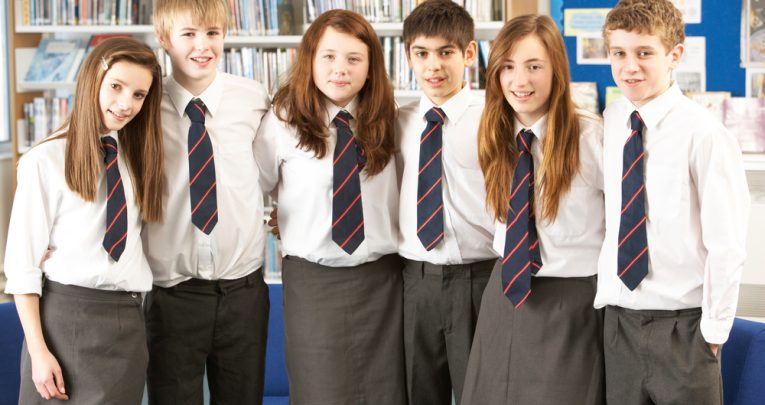“Comprehensives Should Not Just Be Called Upon In A Crisis And Given The Dirty Work To Do”

If the government is serious about improving the state school system, they would be far better off learning from the country's best comprehensives, rather than its grammars, argues Miranda Perry…

The new school year is now well under way, and in the majority of our secondary comprehensives, the Year 7s have settled in well.
Four weeks into term, most of them will be getting to the right subjects at the right time, in the right rooms. They will have learned to tie their ties, remembered to bring their PE kit, written their homework in their planner, and be closely observing the science safety code.
We know though, that this will not have happened by magic. Because that Year 7 intake is comprehensive, a lot of those children will have had to overcome significant hurdles to succeed in such daily routines. A ‘summer born’ boy, more able for his age but not for his year group, might have been intimidated by the texts in Year 7 English, with the smaller print and high quantity of pages. A dyspraxic girl highly accomplished at mathematics, but with a limited concentration span, might have been daunted by the hour-long lessons.
Unobstructed by obstacles
Comprehensive schools are experts at resolving obstacles to learning. They see it as their job to ensure that all students have equal access to their potential, so that they can hit the ground running in Year 7.
That ‘summer born’ boy was so delighted to receive a ‘postcard home’ in the first week of term, praising him for his original ideas in English, that he braved a library for the first time in his life, taking the book out that they were studying in class, and familiarising himself with the story’s content ahead of the next lesson. The self-esteem of the mathematics girl genius was given a huge boost after she was head-hunted to attend the after school ‘maths-wizz’ club;’.
It’s likely that neither the ‘summer born boy’ nor the ‘maths girl genius’ would have passed their 11-plus – a test which, after all, is most effective at sorting out those children who find learning and tests difficult and those who do not. It selects for grammar schools those students who find learning the easiest; the students who have had a learning journey towards secondary school relatively unobstructed by obstacles.
Grammar schools do not, therefore, have to be experts at finding solutions to learning problems, since they get to teach the ‘brightest and the best’. They do not necessarily have to find a solution for an inveterate ‘school refuser’ – for instance, by getting the office to send him on errands to lessons, until he is comfortable to stay in them. They don’t necessarily need to support a student who never knows whether she is staying at her mum’s or gran’s, by helping her organise her school bag and keeping equipment ready for her at breakfast club.
When the going gets too tough
For these reasons, it should not be to grammar schools, or any system of selection, that the government should be turning to for solutions to getting the best out of children. They should be looking to our best comprehensives.
This is because comprehensives have to have a culture of aspiration for all students, regardless of perceived prior attainment; a culture which will be stripped away from them if they are consigned to a secondary modern remit. A comprehensive school resolves hurdles to learning, while a secondary modern, by dint of its second class status, will only reinforces them.
A grammar school sets up the 11+ as a barrier, so that they only have to teach the students who can get over it.
Our best comprehensives are archaeological in their unearthing of children’s obstacles to success, and unstinting in supporting children to find a path through them. The government should be loudly endorsing, advocating and celebrating those schools that bring about exceptional progress for all groups of students, regardless of prior ability or background, rather than those schools that select the brightest or the richest, or happen to be the best funded through private money.
The schools that score highest in national rankings ought to be those that can get the best progress out of both the most and least able; not those schools who produce the comparatively straightforward outcome of high attainment from bright kids.
We already rely on our best state secondaries when the going gets too tough for everybody else. They are the ones, after all, which are turning ‘failing schools’ around through multi-academy trusts. They should not just be called upon in a crisis and given the dirty work to do – they should be developed into well-funded research centres of excellence, working alongside peer schools, academics and other sectors and systematically sharing good practice, celebrating exciting advances in education and directly advising on government policy.
It is the expertise of our best comprehensives on which the government should rely to improve the state system, and not on institutions which only have to teach students who find it easiest to learn.
Miranda Perry is founder and co-director of the World Class Schools Quality Mark, which accredits non-selective state schools that have gone beyond Ofsted’s outstanding rating to compare with the best schools internationally. For more information, visit www.worldclass-schools.org or email info@worldclass-schools.org











